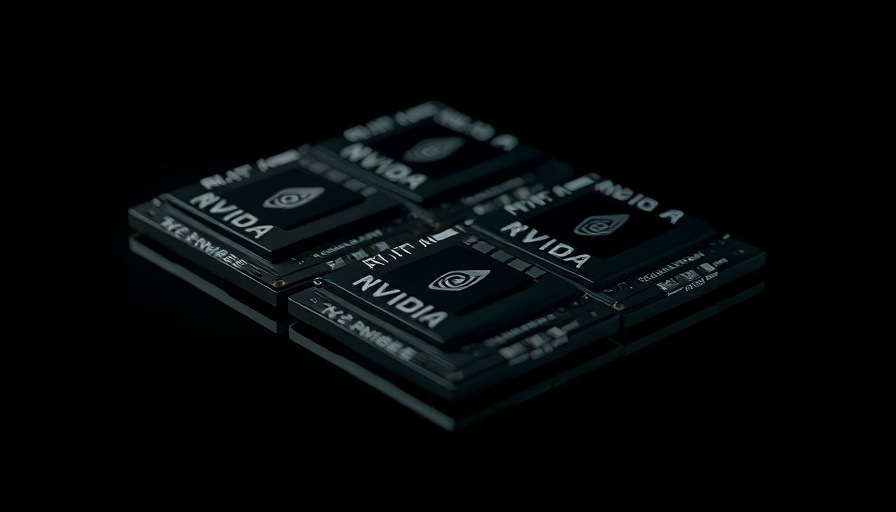
Chinese Buyers Find Ways Around US Export Controls on NVIDIA Chips
Despite stringent US export controls aimed at limiting access to advanced technologies, Chinese purchasers are successfully acquiring NVIDIA's latest artificial intelligence (AI) chips, revealing significant loopholes in the enforcement of these regulations. The method of sourcing these chips has evolved, with many traders leveraging a complex underground network of brokers and third-party sellers positioned in neighboring countries like Malaysia and Vietnam.
Understanding the Rise of the Underground Market
The demand for NVIDIA's cutting-edge AI chips, particularly the Blackwell and H20 models, has prompted a surge in illicit trading. A striking example lies in the recent transaction involving a Shenzhen vendor who secured over $3 million worth of Blackwell chips from clients in Shanghai. By working through third parties based outside of China, such as in Southeast Asia, these brokers are effectively bypassing the constraints put in place by the US government.
The Role of Cloud Services in Evasion of Restrictions
Simultaneously, the exploitation of cloud services has emerged as another means for Chinese firms to access banned AI chips. Through cloud providers like Amazon Web Services (AWS) and other smaller entities, companies in China can utilize NVIDIA's A100 and H100 chips without directly importing them, circumventing US export regulations. Reports indicate that many Chinese organizations are now turning toward these cloud solutions, as they can’t only access restricted AI models but do so at a lower cost than domestic options. A recent case of Shenzhen University indicates spending of around $28,000 via an intermediary to use AWS cloud servers, showcasing the innovative strategies employed by Chinese firms.
NVIDIA’s Response to Evasive Tactics
NVIDIA has publicly acknowledged its commitment to compliance with US regulations, stating that it will monitor reports of potential diversions closely. The firm emphasizes that reliable support is crucial for customers of its advanced AI technologies, but traders operating outside legitimate channels lack the quality assurance offered by NVIDIA. However, the company's efforts to curb the unauthorized sale of its chips have proven challenging, as evidenced by the persistent and increasingly ingenious techniques being adopted by Chinese enterprises.
Implications for the Global AI Market
As Chinese companies ramp up their orders for NVIDIA’s H20 chips—one of the last models not subject to restrictions—there is evident pressure on US chip makers to adapt to this evolving competitive landscape. Local giants like Alibaba and Tencent are centrally positioned in this arena, exacerbating tensions between US tech companies and their Chinese counterparts as they scramble to secure advanced processing power ahead of future legislative measures.
International Regulations and Future Outlook
The current situation raises significant questions about both regulatory effectiveness and market equity. Observers note that as US lawmakers tighten cloud access regulations, the dynamic between buyers in China and US sellers could continue to evolve rapidly. Many industry experts predict that while existing US policies strive to limit Chinese access to high-performance chips, the demand for such technologies will likely fuel an ongoing cat-and-mouse game between governments and corporations.
Consider the Broader Market Effects
In light of the ongoing chip crisis and the restrictions placed on trade with China, industry leaders emphasize reevaluating strategies to maintain competitiveness in a global marketplace fraught with both opportunity and legal complexity. Adapting to the reality of enforced regulations and their responses will be crucial for companies wanting to navigate this ever-changing landscape. Hence, US companies must not only enhance their technological offerings but also rethink their approaches to compliance and market penetration.
If you’re interested in the rapid advancements in AI technology and how international trade tensions are shaping the industry, stay informed about the latest updates in the field. Engage in discussions about the intricate web of global technologies and market strategies that underpin these developments!
 Add Row
Add Row  Add
Add 




 Add Row
Add Row  Add
Add 

Write A Comment